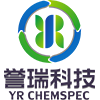While Vitamin C occurs in nature, we do not naturally produce it in our bodies. Although we can include Vitamin C in our diet, we also need to supply it topically to experience the true benefits to skin. By incorporating Vitamin C in our skincare routine, skin starts to look brighter and tighter. Vitamin C is also able to help prevent future signs of aging.
Vitamin C is most often known as Ascorbic Acid. However, this form is known to be very unstable during formulation, and not tolerated by all skin types due to its low pH. This is where derivatives come into play.One of the biggest issues facing manufacturers is that the natural form of Vitamin C, ascorbic acid, is unstable unless it is dry.One way it becomes unstable is when it comes into contact with air or other oxidizing agents. This instability can cause the product to be ineffective and a waste of time. The Vitamin C may be oxidized, which at best could make the product useless and at worst could actually increase the number and formation of free radicals hurting your skin.
Solutions to Vitamin c unstability: Vitamin C derivatives
Derivatives of vitamin C are known as inactive forms, or esterified forms. These require conversion in our skin to ascorbic acid, and get activated once applied onto the skin. They also tend to penetrate the skin better, and are more stable than pure Ascorbic Acid.
The ideal Vitamin C derivative should be able to do the following:
- Penetrate into your skin and release L-ascorbic acid in a strong enough amount to boost collagen formation.
- Stay stable and not irritate the skin like Vitamin C.
YR Chemspec supply the following Vitamin C derivatives:
Magnesium Ascorbyl Phosphate(MAP),CAS#113170-55-1
Sodium Ascorbyl Phosphate(SAP),CAS#66170-10-3
Ascorbyl Palmitate(AP),CAS#137-66-6
Ascorbyl Glucoside(AA2G),CAS#129499-78-1
Contact us and you will get what you want!
Post time: Jan-05-2024


